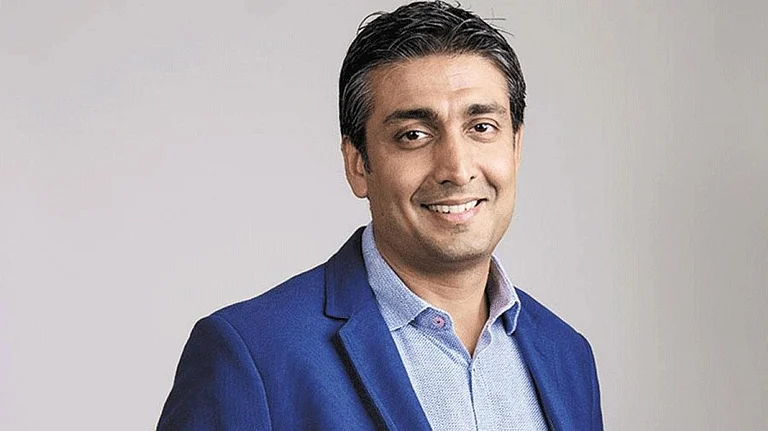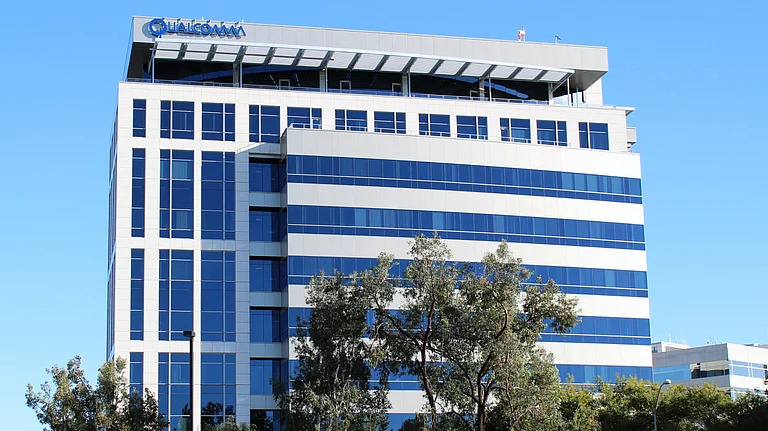I was born and brought up in a village in Andhra Pradesh’s Nellore district. I was brash and would not study, and since my parents wanted to have complete control over me, they kept me in the village. I was really bright in everything but studies! But when I was in middle school, there were children in my class who won prizes and that caught my attention: why didn’t I get any prizes? My sole objective, then, was to win a prize too.
My friends warned me that I would have to study, and study really hard — and that was obviously beyond me. But I love a challenge, so I said to myself, “I have to do this.” That was a turning point for me, because from there on I started disciplining myself. I would wake up early, do my chores on time and put in a good amount of time studying every day. The result was as expected. I soon started getting good marks and that motivated me to study even harder.
I was made the head boy, so I would go up to the stage during morning prayer and other students would salute me — that gives you such a high, you never want to give it up. I had to retain it, which meant I had to continue working hard. Ironically, until I got out of school, my parents did not believe I had really transformed. They believed me only after I passed my SSLC with flying colours.
After school, I moved to Hyderabad to pursue my bachelor’s degree in Economics. Moving from the village to Hyderabad was a huge jump. In the village, you have intelligent people but they do not get the exposure or the opportunity, which can make all the difference. I was lucky. After graduation, I was dreaming of going to the US to pursue further studies, but my family wanted me to take over the business. We had just had a family division and, being the eldest son, my father wanted me to take charge of our portion of the business. I hated the idea of business, and kept protesting the first three weeks, but became somewhat comfortable with the idea as time passed. Well, I had no choice.
My first project was some construction work for Nagarjuna Sagar Dam, which was quite complex and gave me a good understanding of the challenges in the construction business. For the next few years or so, I continued with the family business, but my aggressive streak had not deserted me. I wanted to scale new heights — break the roof every now and then — and my parents were scared I would end up ruining everything in the process. I had younger brothers so that made my parents even more nervous about my ways. I could understand their sentiment, but never agreed with them! And they were only too happy when I told them I would want to pursue something independently.
But what brought a sigh of relief to my parents turned out to be a stress point for my wife. I decided that I would not pursue the construction business — because all the projects were with the government, and you did not have the satisfaction of creating something that you could call your own. In construction, your raw material is cash, and we were doing very well, so to give up that business meant stepping into unknown territory and going through a pain period. Much to my wife’s displeasure, that is what I did: I started this company called Novo Pan that manufactured pre-laminated particles. I made my share of mistakes and went through that learning period.
In the early 1980s, downturn struck India and I was getting jittery about how things would shape up. So I decided to move to the US. For the next 10 years, I was abroad and set up the international business for Novo Pan, while my family, including my wife, stayed back in India to look after our businesses here. Going out of the country was great in terms of learning and exposure.
And then, in 1992, Andhra Pradesh chief minister Marri Channa Reddy visited me in North Carolina, and he was amazed at how well I was doing there. I had got 200 acres of land free from the state, along with unlimited supply of water, and even financing was at favourable terms. Reddy literally forced me to re-locate to India, impressing up on me that the country was liberalising and there were several business opportunities emerging. I was sceptical and said, “Give me a week.” Meanwhile, I spoke to friends and they felt it was not a bad idea. While I decided to relocate to India on Channa Reddy’s insistence, I did not put my money where he proposed. He had suggested I put money in the airlines business — I wonder what state I would be in if I had done that! In hindsight, both my decisions — to come back to India and avoid the airlines business — turned out to be right.
Power drive
That’s when the big leap happened. I decided to get into the power business by setting up an independent power project at Jegerupadu in Andhra Pradesh. It was a dream project that almost turned into a nightmare. We had great partners like GE for technical support for operation, and World Bank for funding, and the government had given us counter-guarantee: it was a great opportunity. But the finance ministry took three years to sign the papers, and IFC did not deliver the money on time because the guarantee was not in place. And I have to tell you that no one could have overcome the challenges I faced after I came back from the US. Really.
I started the project and completed it before we actually achieved financial closure! And then, I went to World Bank and told them that if they did not disburse the money within the week, I did not need their money anymore. My threat worked — they sent an official to Delhi, pushed for the approvals and made the disbursement within seven days. Our project was in IFC’s balance sheet as one of the four best in the world. And all this despite the bureaucracy. Even today, people in Delhi say after 6 pm monkeys take over the finance ministry. And some of them even get paid a salary.
In 2006, when I met James Wolfensohn (World Bank president until 2005), he honoured me in Mumbai and complimented me on finishing the Jegerupadu project despite all the political problems. You know what I told him? “I can deal with our bureaucracy, but it was more painful to deal with the western bureaucracy. The lawyers take until eternity to do their jobs; they take months to finish something that they could have done in a few minutes. It is because they get paid by the hour. They have an incentive to delay the work, rather than speed it up.”
Turning into a hotelier
I am proud of what we have achieved in infrastructure — despite all the red tape and the hardships in infrastructure projects — but truth be told, our hotels business is closest to my heart. In college, I used to frequently visit the Taj Mahal Hotel in Hyderabad, which was quite a famous hotel then. And every time I went there, I thought to myself that I wanted to build a hotel. And people used to laugh at me! The only 5-star hotel in those days was the Ritz.
So I built Krishna Oberoi (now Taj Krishna) to whet my desire. But the next one was not because of any keen intent to expand into hotels as a business. I had a lot of land adjacent to Taj Krishna and the government wanted to build a road there, which meant that it would have taken over my land. To save my land, I built another hotel -— called Holiday Inn Krishna then and called Taj Residency now — even though my first hotel was bleeding.
Meanwhile, our 10-year management contract with the Oberoi group was ending and according to the agreement, Oberoi would be paid a management fee only if we made enough money to service interest costs. Since we did not do so, Biki [PRS Oberoi, head of the Oberoi group] did not get a fee for 10 years so, understandably, he wanted to get out. So we approached Krishna Kumar of Taj Hotels for an operations contract and KK jumped at the opportunity — the Taj was more than happy to pick up a stake. After that, even ITC expressed interest, but we decided to go with Taj because we went to them first. We gave them 25% and kept 50% with ourselves, retaining management control. Now we have four hotels in Hyderabad and one more is coming up.
Keeping my word
If there is one thing that drives me, it is challenge. Challenges, and the hope that I can overcome. The most essential aspect of achieving your goal, which I learnt very early in life, is discipline.
I do not talk much, but people misunderstand me and think I am headstrong and proud. That is not the case; you have to conserve energy to achieve what you want. I play tennis every day. My wife says, “Tennis is your girlfriend.” I say, “It’s more than that!” Let me explain with what I have learnt from tennis. When you are on the court, you have to keep talking to yourself and fighting inside. That dialogue within yourself is what is reflected in your action. You should never show ego. That is why I like Roger Federer — he is always calm and quiet, never loses his temper.
Coming back to business, luck plays a significant role in shaping your future, especially in business. You must have a vision and you must find your own path. Only trust and confidence can give you the strength you need to achieve what you want to achieve. Needless to say, you achieve nothing without discipline and commitment. And you have to keep learning. I pick up new things every day, from everybody. Even as you question me, I am forced to think and that itself is a learning because you are asking me things I probably never thought about.
As much in business as in life, you have to live by the values you set for yourself. If you do a good deed to a bad man, even that will be reciprocated. And do not change as a person — money comes and goes.
For me, the most important thing is my word. I have to live to fulfil my word. Let me tell you something. ABB was our EPC contractor for the first power project, and we owed them 100 million Swiss Francs but we could not pay them since the money was not released by the World Bank. Dr Linhardt, who was with ABB then, took a leap of faith and backed us, and that really helped.
I tell my people, don’t take contracts too seriously, English is a funny language; tomorrow anyone can come with a different interpretation and renege on a commitment, but your word is your word.











